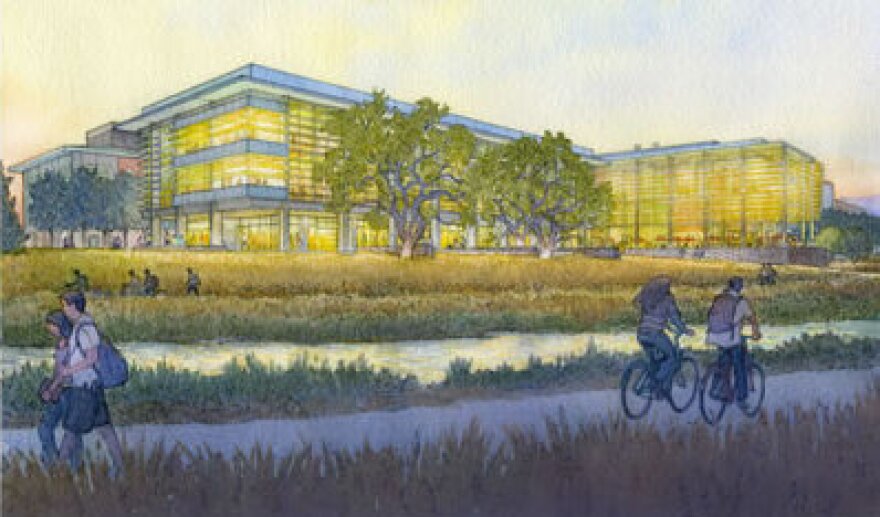UC Merced may be less than a decade old, but the struggling economy and environmental concerns are already leading campus officials to explore the possibility of directing some of the university's future growth to off-campus locations.
Chancellor Dorothy Leland recently wrote in an op-ed for the Merced Sun-Star that the university will work with the Washington D.C. based Urban Land Institute (ULI) to identify ways to grow outside of the current site at Lake Yosemite. Campus development plans were altered in the early 2000's after environmental studies identified the site as home to the endangered fairy shrimp, which lives in seasonal vernal pools around the site, which was formerly ranch land.
With a projected enrollment of 10,000 students within eight to 10 years, UC Merced faces daunting financial challenges in meeting campus development needs beyond the current "golf course footprint." These challenges not only include the scarcity of capital dollars from the state but also significant infrastructure and mitigation costs. Thus, the continued growth of UC Merced in the constrained resource environment we face today requires us to consider development alternatives that potentially do not require significant infrastructure investment, that may reduce mitigation costs, that leverage creative financing options and that complement and support the university's academic and research missions.
Leland has charged the ULI with developing a range of scenarios for future development that would bring additional campus research, administrative and support functions to sites "where infrastructure and other public services are already in place." The campus currently has employees at a number of off campus sites, including in Merced and at the UC Center in Fresno.
The university is facing a number of issues that make expanding off-campus a potentially appealing idea. In 2011, state support for the UC system was cut by over 23 percent. And if voters don't approve Governor Brown's tax increase in November, the system could face another $375 million in cuts this year.

At the same time as state support for the system is declining, UC Merced's student population is growing. Earlier this year the campus had to limit enrollment, and the university will have a record 5,600 students this fall. But Leland says the campus needs to accommodate as many as 10,000 students in the next decade.
While construction is underway on a new science and engineering building, which is expected to be completed in 2014, the capacity of the campus remains an issue. Expanding the current campus footprint would be especially expensive, in part due to mitigation measures that are designed to avoid or offset impacts to the environment.
The change in strategy also reflects changing attitudes about development throughout the Golden State. Since UC Merced was first envisioned in mid 1990's, concerns over global warming and environmental sustainability have led to a greater focus on urban infill development, versus so-called "green field" projects far from existing urban centers. The state's so-called anti-sprawl bill, SB 375, became law in 2008 and seeks to direct local governments to reconsider plans for growth outside existing urban areas.
In 1995, the UC Regents selected land adjacent to Lake Yosemite as the site for the San Joaquin Valley's first UC campus. The Merced location won out over two other Valley sites, one in Madera County near Highway 41 and the San Joaquin River, and one in Fresno County off Highway 168 near Academy, east of Clovis. The campus opened in 2005.


